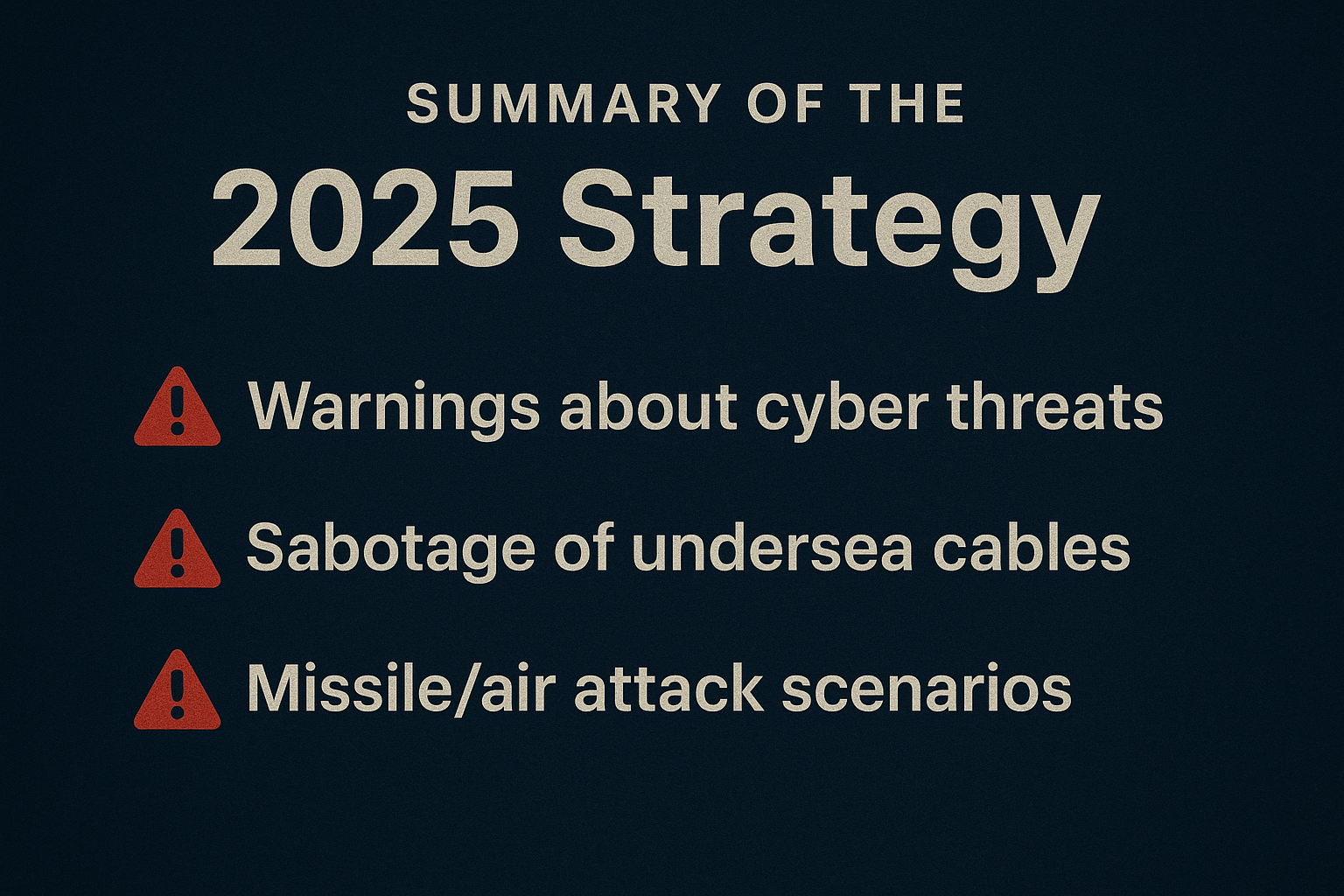Emergency Preparedness
Summary of the 2025 Strategy: Key Warnings for the UK
Ethan Walker
17/07/2025
2 min read

2025 Strategy: Top Security Warnings
1. Escalating Cyber Threats
- Cyber attacks are now considered one of the most serious threats to UK infrastructure, businesses, and daily life.
- The strategy warns of sophisticated attacks on energy grids, water supply, transport, healthcare, and financial networks.
- Ransomware, data theft, and digital disinformation campaigns could disrupt public services and erode trust in institutions.
- Preparedness Tip: Keep all devices updated, use strong passwords, enable two-factor authentication, and back up critical data offline.
2. Sabotage of Undersea Cables
- The UK is especially vulnerable to sabotage or disruption of undersea cables, which carry over 95% of global internet traffic and financial transactions.
- The strategy highlights the potential for hostile states or non-state actors to target these cables, causing severe communication and economic chaos.
- Threats include physical cutting, cyber interference, and mapping of cable locations by foreign vessels.
- Preparedness Tip: Have offline communication methods ready and maintain printed copies of key information.
3. Missile and Air Attack Scenarios
- For the first time in years, the 2025 strategy openly addresses the risk of missile strikes and air attacks on UK soil.
- While considered unlikely, the possibility of advanced missile or drone strikes from hostile nations is not ruled out.
- Emphasis is placed on early warning systems, public alert networks, and the need for citizens to know local shelter locations.
- Preparedness Tip: Stay informed about your area’s warning systems, and know basic shelter and evacuation procedures.
Key Takeaways for UK Preparedness
- The threat landscape for 2025 is complex, with cyber attacks, sabotage, and kinetic threats all possible.
- Individuals, businesses, and communities should take proactive steps to secure data, plan for communication outages, and be aware of local emergency plans.
- Staying informed, practicing digital hygiene, and understanding physical security basics are now essential for all UK residents.